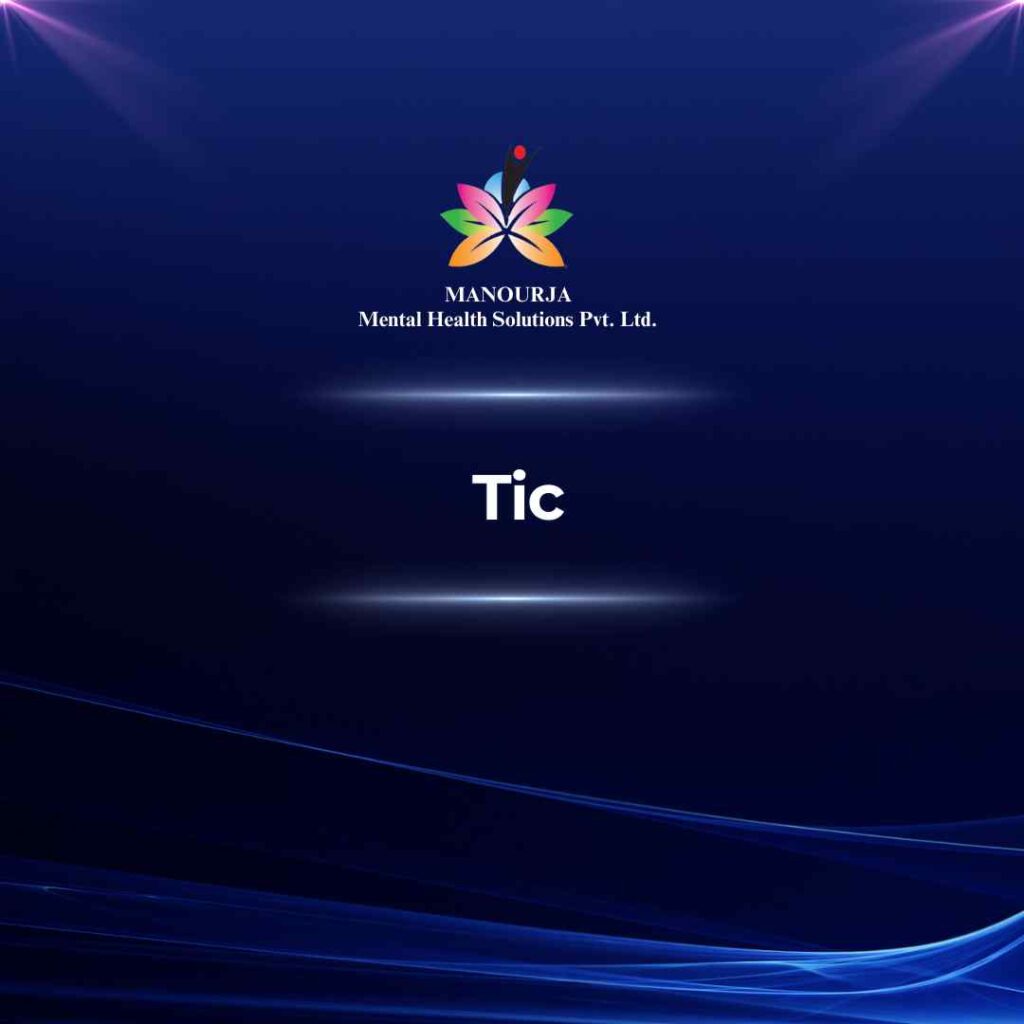Tic

“Tic” refers to a sudden, repetitive, non-rhythmic movement or sound that can be involuntary or semi-voluntary. It is typically brief, rapid, and occurs intermittently. Tics can manifest as motor tics (involving movement) or vocal tics (involving sounds or words). While tics themselves are not mental illnesses, they are often associated with certain mental health conditions, particularly tic disorders and other neurological disorders. Here’s an overview:
A tic is an involuntary or semi-voluntary movement or vocalization that is sudden, rapid, and repetitive. Tics can vary in intensity and frequency, and they may worsen with stress, anxiety, or excitement. Examples include blinking excessively, facial grimacing, throat clearing, or repetitive vocal sounds.
Tics as Signs and Symptoms of Mental Illness
Tics are primarily associated with the following mental health conditions:
- Tic Disorders: These include conditions such as Tourette syndrome and chronic motor or vocal tic disorder. Tourette syndrome is characterized by multiple motor tics and at least one vocal tic that occur for more than a year. Chronic motor or vocal tic disorder involves either motor or vocal tics (not both) lasting for more than a year.
Symptoms and Characteristics:
- Motor Tics: These involve sudden, involuntary movements of specific muscle groups, such as eye blinking, head jerking, shoulder shrugging, or facial grimacing.
- Vocal Tics: These are sudden, involuntary vocalizations or sounds, such as throat clearing, grunting, sniffing, or repetitive utterances of words or phrases.
- Transient Tics: Occasional, brief tics that may occur in response to stress or excitement but do not meet the criteria for a tic disorder.
Causes and Triggers:
- Genetic Factors: Tics often have a genetic component and may run in families.
- Neurological Factors: Abnormalities in the brain’s neurotransmitter systems, such as dopamine, are thought to play a role.
- Environmental Factors: Stress, anxiety, fatigue, or excitement can exacerbate tics.
Treatment and Management:
- Behavioral Therapies: Cognitive-behavioral therapy (CBT) and habit reversal training can help individuals manage and reduce tics.
- Medication: In some cases, medications like antipsychotics or alpha-2 adrenergic agonists may be prescribed to suppress tics.
- Supportive Therapies: Support groups and counseling can provide emotional support and strategies for coping with tic-related challenges.
In summary, tics are involuntary movements or sounds that are characteristic of tic disorders such as Tourette syndrome. While not a mental illness themselves, they are important symptoms to consider in the context of neurological and psychiatric evaluation and treatment.
At MANOURJA, we believe in the transformative power of counseling. Our experienced therapists offer a safe and supportive space where you can explore your thoughts, emotions, and challenges. Through personalized counselling sessions, we’ll work together to develop coping strategies, build resilience, and achieve lasting positive change. Discover the path to a healthier, happier you with MANOURJA counselling services.
MANOURJA Rehabilitation Services
At MANOURJA, we’re dedicated to helping you in rebuild your life, after difficult times. Our rehabilitation services focus on understanding what you need to move forward, whether you’re recovering from addiction, trauma, or any psychological – social challenges. We create personalized plans, that are all about helping you, regain your strength and find hope again. With a caring team by your side, you’ll have the support to make real progress and take steps toward a brighter, healthier future.
